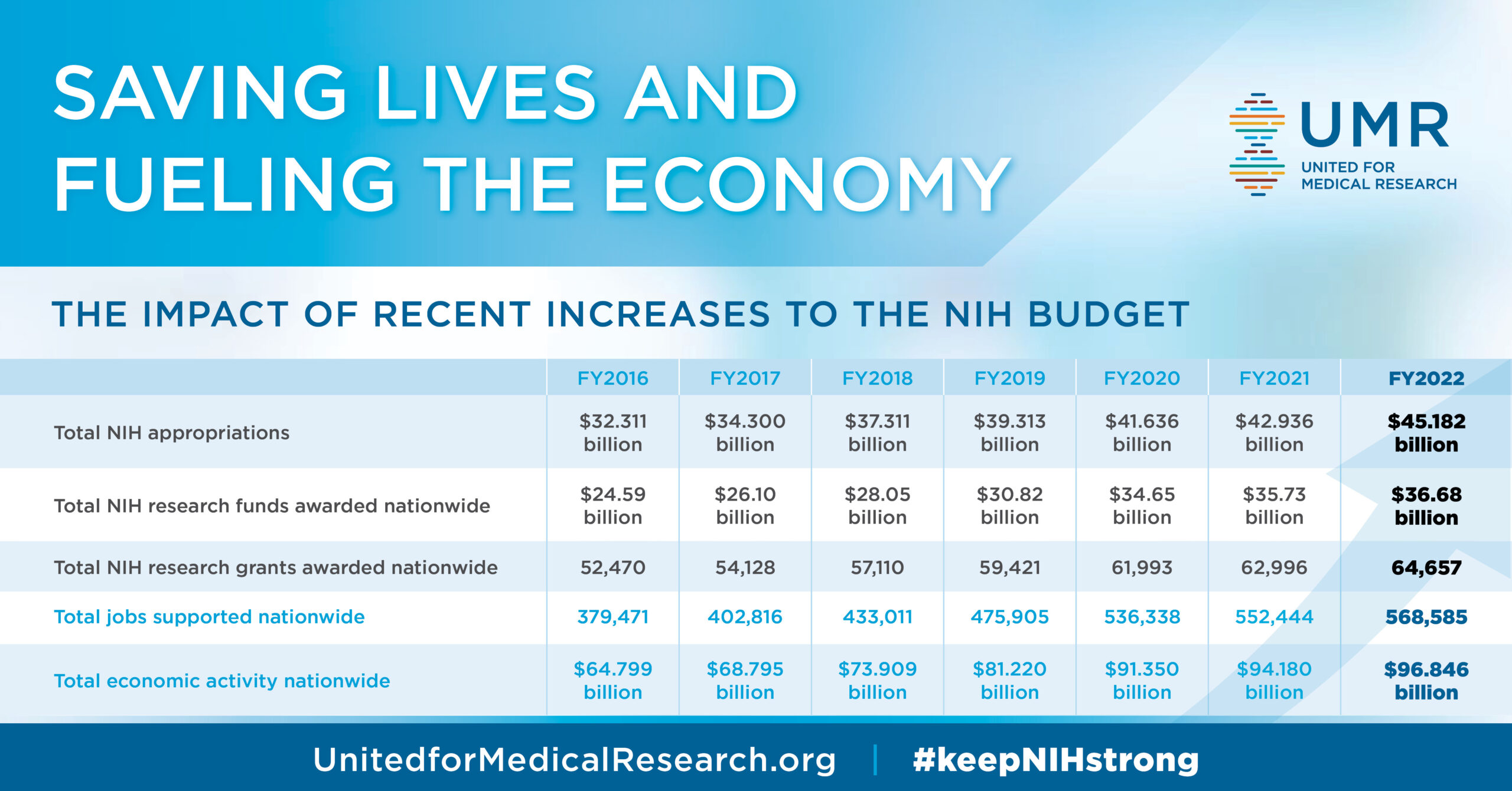The impact of funding cuts on medical research has become increasingly evident, particularly in light of recent federal decisions affecting prestigious institutions like Harvard. With the Trump administration’s freeze of over $2 billion in federal research grants, vital work aimed at ensuring patient safety in research is jeopardized. The disruption caused by these cuts threatens not just the progress in finding treatments and cures but also the fundamental oversight mechanisms, like IRB approval, that safeguard participants in clinical studies. The loss of medical research funding hinders innovation and could lead to a chilling effect on the collaborative efforts essential for advancing health care. As institutions struggle with these financial constraints, the road ahead for critical medical advancements remains fraught with uncertainty.
Recent reductions in research funding have significant consequences for the medical science community, especially concerning patient safety and ethical oversight. These financial constraints hinder the ability of institutions to conduct crucial studies and maintain the rigorous oversight that is paramount in protecting individuals who participate in clinical trials. When grants are cut, as seen with NIH funding cuts, not only are ongoing projects stalled, but new endeavors are also impacted, potentially leaving unanswered questions that could lead to breakthrough therapies. This situation creates an environment where patient welfare may be compromised, illustrating the delicate balance between funding and ethical research practices. In broader terms, the halt in financial support raises alarms about the future of pioneering health research and its societal benefits.
The Critical Role of Funding in Medical Research
Funding is a vital lifeline for advancing medical research that not only leads to groundbreaking discoveries but also ensures patient safety and welfare. Medical research funding facilitates the development and oversight of new treatments and interventions. Organizations such as the National Institutes of Health (NIH) provide essential grants that support clinical trials and studies, enabling researchers to explore innovative solutions to complex health issues. Without adequate funding, there’s a significant risk that crucial studies could be delayed or entirely halted, affecting not only research timelines but also the patients who are waiting for new therapies.
Moreover, funding is not merely about financial resources; it represents a commitment to advancing health outcomes for society. Cuts in research funding, such as the recent $2 billion halted by the Trump administration, disrupt not only individual studies but also the broader network of scientific collaboration across institutions like Harvard. This funding supports the overarching framework, including the institutional review boards (IRB) that uphold ethical standards and patient safety in medical research. The loss of financial backing not only stalls progress but can also diminish public trust in the research process, emphasizing the need for stable funding streams.
Impact of Funding Cuts on Medical Research
Funding cuts to medical research can jeopardize the entire ecosystem that protects patients involved in clinical trials. Institutions that rely heavily on federal funding for their IRB oversight and patient safety measures are finding themselves in precarious positions. When research funding is slashed, many essential oversight functions that ensure participant safety may become compromised. Without sufficient resources, IRBs face challenges in adequately reviewing research proposals, potentially increasing the risk of unethical practices or safety oversights during clinical trials.
Long-term funding instability fosters an environment of uncertainty, making it difficult for research institutions to plan and implement necessary patient safety protocols effectively. For instance, the recent NIH funding cuts have resulted in many pending studies being put on hold, thereby delaying progress in critical areas like cancer research or drug development. The repercussions extend beyond immediate research, as they instill fear and skepticism within communities that depend on medical advancements. Such an atmosphere can lead to a significant decline in volunteer participation for clinical studies, further hampering the research efforts.
The Role of Institutional Review Boards (IRBs)
Institutional Review Boards (IRBs) serve as a cornerstone for ethical oversight in all research involving human subjects. Their primary responsibility is to ensure that participants’ rights and well-being are protected throughout the research process. By meticulously reviewing research proposals, IRBs assess the ethical ramifications and ensure compliance with both federal and state regulations. This level of oversight is critical, especially in studies that involve new treatments or medications where the risk-to-benefit ratio must be carefully analyzed and understood.
Moreover, IRBs play a pivotal role in fostering a transparent dialogue between researchers and participant communities. Their function as a mediator ensures that potential subjects are fully informed about the nature of the study, potential risks, and their rights to withdraw at any time. The presence of a robust IRB system instills confidence among participants, encouraging them to take part in research that could ultimately benefit public health at large. With diminishing research funding, the IRB’s capability to maintain these essential protections could be undermined, posing a risk not only to current studies but also to the health and safety of future patients.
Consequences of Cutting NIH Funding
The National Institutes of Health (NIH) is a vital source of funding for medical research across the United States, driving advancements that save lives and improve healthcare standards. When NIH funding is cut, as seen in recent government actions, it can have devastating effects on ongoing and planned research projects. Funds that would typically be allocated to safeguard patient safety, enhance research infrastructure, and support the work of IRBs are diminished, resulting in delayed studies and stalled medical innovations.
Additionally, funding cuts can create a ripple effect that impacts research institutions nationwide. For example, without sufficient NIH funding, the collaborative research essential to combatting diseases like Alzheimer’s can become hampered by resource limitations, inhibiting the collective effort required to make significant strides in treatment development. The reduction in financial support discourages researchers from engaging fully in risky but potentially rewarding research, leading to stagnation in critical scientific queries, which ultimately affects patient care and outcomes.
The Importance of Continuous Research Support
Continuous funding support for medical research is crucial not only for driving innovation but also for maintaining the intricate safety nets that protect participants. Consistent funding ensures that research teams can adequately address potential risks associated with new medical interventions and uphold the stringent standards set by IRBs regarding patient safety. Without ongoing financial commitment, the integrity of research efforts can be jeopardized, which could lead to reduced public confidence in clinical trials.
Furthermore, sustained funding is essential for establishing collaborative networks between multiple research sites. Studies that involve various institutions benefit significantly from coordinated efforts and centralized oversight, which require resources to function effectively. Disruptions caused by funding shortages hinder these collaborations, forcing researchers to navigate complex logistical challenges and potentially fail to deliver critical findings on time. In the long run, this undermines progress in medical research and can have dire consequences for public health.
Challenges Faced by Research Institutions
Research institutions are under immense pressure to maintain their operational capabilities amid fluctuating funding landscapes. As funding dwindles, institutions are compelled to make difficult choices about where to allocate their limited resources, often resulting in cuts to essential oversight programs, including those managed by IRBs. The challenges presented by a loss of funding can inhibit researchers’ ability to carry out essential medical studies, directly affecting patient safety due to a potential lack of oversight and ethical review.
Additionally, funding cuts can create an atmosphere of uncertainty that undermines institutional morale and the commitment of faculty and staff. Researchers may feel discouraged about pursuing ambitious projects, knowing that lack of funding could lead to failure or halted studies. This erosion of trust can diminish institutional reputation, making it difficult to attract top talent and secure future funding from donors who expect accountability and successful outcomes in research endeavors.
Protecting Patient Safety in Research
Ensuring patient safety during medical research is paramount and rests heavily on the financial support dedicated to oversight activities. Funding provides the necessary resources for IRBs to assert their governance functions effectively, providing an essential check against potential ethical breaches in research. It allows for thorough reviews and monitoring of studies to ensure that participants are not exposed to undue risks and that their rights are upheld throughout the research process.
Moreover, adequate funding allows for improvements in the infrastructure supporting patient safety initiatives. Research institutions can invest in training for IRB members and researchers, raising awareness about the ethical implications of studies and enhancing the overall safety net for participants. With the potential for severe consequences stemming from unethical research practices exemplified in historical abuses of medical research, a robust funding base to support patient safety is vital for maintaining public trust and promoting participation in crucial clinical trials.
The Legacy of Ethical Oversight
The legacy of ethical oversight in medical research is grounded in historical experiences that brought the vulnerabilities of research participants to light. Events such as the Tuskegee syphilis study serve as a stark reminder of the importance of implementing strong oversight mechanisms, like IRBs, to protect individuals within clinical studies. Proper funding allows these mechanisms to grow and adapt continually, ensuring that they address contemporary ethical challenges and maintain participant welfare.
Moreover, by learning from past mistakes, today’s research communities can produce robust frameworks that prioritize ethical considerations in every study. Continuous funding efforts support education, training, and regulatory compliance, which help further minimize risks to patients. As the landscape of medical research evolves, maintaining a strong ethical oversight legacy through proper funding is crucial to safeguard the future of clinical trials and the patients who bravely contribute to them.
Looking Ahead: The Future of Medical Research Funding
The future of medical research funding is uncertain, calling for urgent dialogues among policymakers, institutions, and the public about the importance of sustained investments in health research. These investments are not only critical for fostering innovation but they also play an invaluable role in safeguarding patient safety and upholding the ethical standards set forth by IRBs. Advocating for more robust funding models can ensure that pivotal research continues to advance despite the challenges posed by political and financial instability.
Proactive measures must be taken to galvanize support for medical research funding, which includes exploring alternative funding sources and enhancing collaborations among institutions. By engaging communities and stakeholders in discussions surrounding research priorities, a sustainability plan for future funding can be formulated. Addressing these issues today is essential to guarantee that the groundwork laid by past researchers is not lost, and that future advancements in medicine can continue to thrive, benefitting all aspects of patient care.
Frequently Asked Questions
How do funding cuts to medical research affect patient safety during studies?
Funding cuts to medical research adversely affect patient safety by disrupting the oversight mechanisms essential for ethical research conduct. For instance, when federal funds are reduced, institutional review boards (IRBs), which are crucial for monitoring patient safety and informed consent, may face budget constraints, leading to less rigorous oversight. Consequently, this could jeopardize the welfare of participants by compromising the thoroughness of safety assessments and the ethical conduct of clinical trials.
What are the implications of NIH funding cuts on medical research projects?
NIH funding cuts can significantly impede medical research projects aiming to enhance patient care. Without sufficient federal funding, researchers may struggle to support comprehensive studies that require extensive oversight from IRBs. This lack of funding not only halts current medical research initiatives but also diminishes the capacity to innovate or develop new therapies, which ultimately affects the availability of advancements in patient treatment.
How does the SMART IRB system benefit medical research funding?
The SMART IRB system enhances medical research funding by streamlining the review process for studies involving multiple sites, thereby reducing administrative burdens and expediting participant recruitment. When budgets face cuts, however, the efficiencies provided by SMART IRB can be lost, as fewer resources may mean longer timelines and delayed patient trials, undermining the overall effectiveness of funded research.
What challenges do funding cuts pose for IRB oversight in medical research?
Funding cuts present significant challenges for IRB oversight in medical research by limiting the resources available for review processes. When financial support dwindles, IRBs may struggle to maintain adequate staff or training programs, resulting in reduced capacity to monitor research ethics and participant safety. This can increase the risk of unethical research practices and inadvertently endanger the rights of participants involved in clinical trials.
In what ways do cuts to medical research funding contribute to public mistrust?
Cuts to medical research funding can contribute to public mistrust by stalling vital research projects and preventing necessary transparency in clinical studies. When research is interrupted or lacks sufficient oversight due to budgetary constraints, communities may become skeptical of the intentions behind medical studies. This erosion of trust can discourage individuals from participating in research, ultimately hindering the progress of medical advancements designed to enhance patient care.
What role does Harvard’s medical research play in mitigating the effects of funding cuts?
Harvard’s medical research acts as a vital buffer against the effects of funding cuts by leveraging institutional support to continue critical studies and uphold ethical oversight through IRBs. Despite funding interruptions, Harvard’s commitment enables ongoing collaborative research efforts, which are essential for maintaining patient safety and advancing medical knowledge, particularly in challenging times when federal funding is restricted.
What historical lessons underline the importance of robust medical research funding?
Historical events, such as the unethical Tuskegee syphilis study and Nazi medical experiments, highlight the urgent need for robust medical research funding to ensure comprehensive ethical oversight. These incidents demonstrate the importance of maintaining rigorous IRB operations and adequate funding to safeguard participants’ rights and safety, emphasizing that without appropriate oversight and resources, similar ethical breaches could recur in contemporary research settings.
| Key Point | Details |
|---|---|
| Federal Funding Cuts | Over $2 billion in NIH funding was frozen, disrupting several research areas, particularly patient safety in medical studies. |
| Impact on Oversight System | SMART IRB, a system for monitoring multi-site medical studies, received a stop-work order affecting ongoing research and participant protections. |
| Role of Institutional Review Boards (IRBs) | IRBs ensure compliance with regulations and protect participant rights through careful review of research proposals and oversight. |
| Historical Context | Previous medical abuses (e.g., Tuskegee) highlight the need for ethical oversight in research, which funding cuts threaten to undermine. |
| Broader Implications of Cuts | Funding cuts can lead to halted studies, increased public skepticism, and a potential negative impact on medical innovations. |
| Current Support Efforts | Despite cuts, Harvard Medical School continues to support collaborative research, emphasizing the importance of safeguarding health and safety. |
Summary
The impact of funding cuts on medical research is profound and far-reaching. The recent halt in federal funding disrupts essential oversight systems like SMART IRB that are crucial for ensuring the safety and rights of participants in medical studies. Without adequate resources, the ability to monitor and protect participants effectively is compromised, leading to potential risks and increased public skepticism towards research endeavors. As institutions face cancellations of grants and contracts, the commitment to ethical standards and transparency in research could diminish, ultimately undermining progress in medical advancements. It is vital to recognize that sufficient funding is essential not just for research, but for maintaining the public’s trust in the medical research system.



